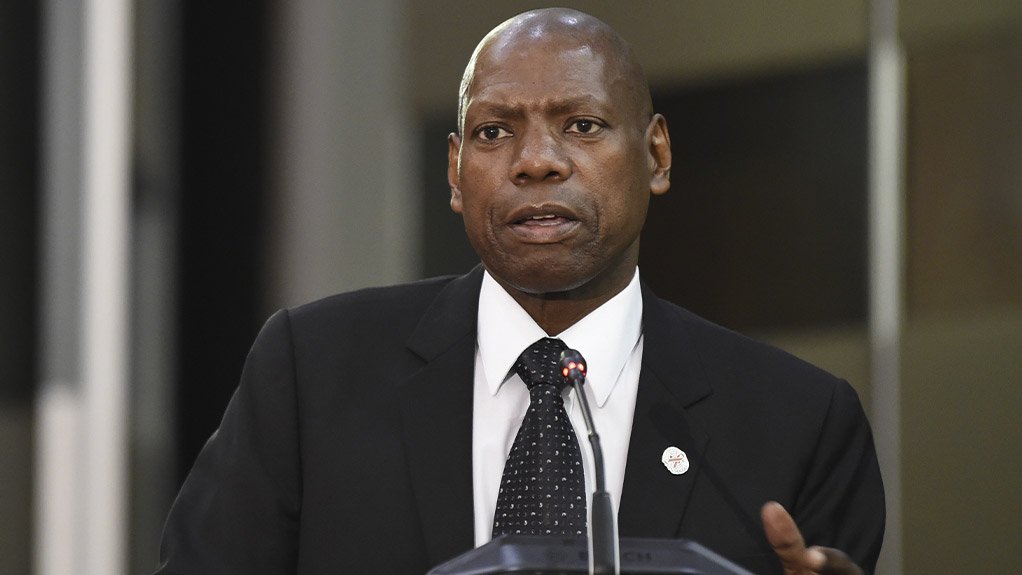/ MEDIA STATEMENT / The content on this page is not written by Polity.org.za, but is supplied by third parties. This content does not constitute news reporting by Polity.org.za.
The Portfolio Committee on Cooperative Governance and Traditional Affairs on Tuesday urged the South African Local Government Association (SALGA) to be more assertive in its dealings with municipalities.
The committee meeting addressed several issues related to local government governance, capacity and political accountability. SALGA further expressed concerns about the declining level of service delivery, instability, weakening capacity of municipalities, and the debt owed to municipalities that impinge on their performance. SALGA briefed the committee on the support the organisation provides to struggling municipalities, the effectiveness of that support and ongoing challenges. SALGA also shared several proposals on how to deal with coalitions in local government.
ALGA’s Chief Operations Officer, Mr Lance Joel, told the committee that the organisation provides support in revenue management through the Municipal Audit Support Programme (MASP). Mr Joel said SALGA also assists with capacity building in local government by ensuring that municipal officials and councillors are appropriately trained and equipped to handle their responsibilities.
Mr Joel shared some alarming statistics on the education levels of councillors and leadership capacity in municipalities. He said that after the local government elections in 2021, over two thirds of the counsellors were new to the sector. “Out of every three councillors, two were new.” Their assessment of education levels of councillors, he said, shows that “out of every three councillors, one does not have matric, the second one only has a matric, and the third one has a post-matric qualification. We are concerned about this picture,” he told the committee.
Mr Joel also said that 50% of the country’s population lives in 17 of the largest metros and municipalities, and 34.5% of the population lives in nine of the biggest coalition-governed municipalities – many with substantial multi-billion-rand budgets and crippling instability. Thus, getting the right people in the municipal administration and councils is crucial.
The committee expressed concerns about the high turnover rate of municipal councillors after local elections, which results in the loss of institutional memory and eroded capacity in municipalities. Similarly, the educational level of elected councillors is important because the municipalities preside over multi-million-rand budgets that can go up to several billions of rands.
Noting this, the Chairperson of the Committee, Dr Zweli Mkhize, stressed that the constitutional rights of the voters to exercise their democratic rights in freely electing their local representatives remains important but needs to be carefully balanced with the need to create a capable body of leaders. It needs to be appreciated that the performance of municipalities in delivering services depends on the capacity of the elected public representatives and the legitimacy and confidence that communities have in these elected leaders.
He further said that since elected representatives have oversight responsibility over multi-billion-rand budgets in municipalities, they must properly understand financial and other complex municipal operations to decide on priorities of services to be delivered, control the budget and hold bureaucrats to account.
The Chairperson said the onus is also on political parties to take responsibility for the ethical conduct and performance of their deployees to ensure strong local leadership through ongoing capacity building, learning, and upskilling before and after their representatives are elected in the council. “We need to encourage that,” he said, adding that SALGA must be instrumental in providing training and capacity-building to elected officials that will enable them to execute their oversight duties effectively.
Dr Mkhize said the committee appreciates the role SALGA plays in supporting municipalities, but the Portfolio Committee does not appreciate the “feeling of helplessness” displayed through the over-emphasis that ‘’SALGA has no executive authority over the municipalities’’. SALGA wields a considerable influence over municipalities and should use this influence to champion a turnaround in the performance of municipalities, deepening accountability and improving audit outcomes.
This is particularly important because the Auditor-General (AGSA) identified political interference as a significant factor in poor audit outcomes. “We believe SALGA has a role to play in helping uphold specific standards in municipalities by creating a set of standards and motivating all municipalities to operate at an acceptable level of efficiency in their functioning. We want to urge SALGA to be more assertive in dealing with municipalities. You are not helpless.”
The committee also reminded SALGA that, although it cannot force compliance from municipalities that do not uphold set standards, it has a voice and a role in identifying these municipalities and providing them with the necessary support to improve.
The COGTA Portfolio Committee welcomed several recommendations by SALGA to eliminate instability, especially in hung municipalities governed by coalitions. The committee supports the recommendation that municipalities consider using the executive committee system instead of the executive mayoral committee system to ensure inclusivity and stability, as has been the practice in KwaZulu-Natal. This would go a long way to promoting tolerance and consensus-building in coalition government now that hung municipalities are becoming a growing feature in local government.
Setting out some of the committee’s planned programmes, including work on distressed municipalities, Dr Mkhize invited SALGA to partner with the portfolio committee when the committee undertakes oversight visits to various distressed municipalities starting next month (October). The visits will focus on engaging with municipal leaders and communities and inspecting service delivery projects.
The oversight visits of the committee would prioritise service delivery, governance, functionality and viability of municipalities, local economic development and job creation (including CWP), prevention of corruption, financial administration, infrastructure maintenance, poverty eradication (including indigent registers), and provision of basic services such as water, sanitation, housing, etc. SALGA could greatly help the committee in terms of research and information support, Dr Mkhize said.
Issued by Parliamentary Communication Services on behalf of the Chairperson of the Portfolio Committee on Cogta, Dr Zweli Mkhize
EMAIL THIS ARTICLE SAVE THIS ARTICLE ARTICLE ENQUIRY
To subscribe email subscriptions@creamermedia.co.za or click here
To advertise email advertising@creamermedia.co.za or click here











